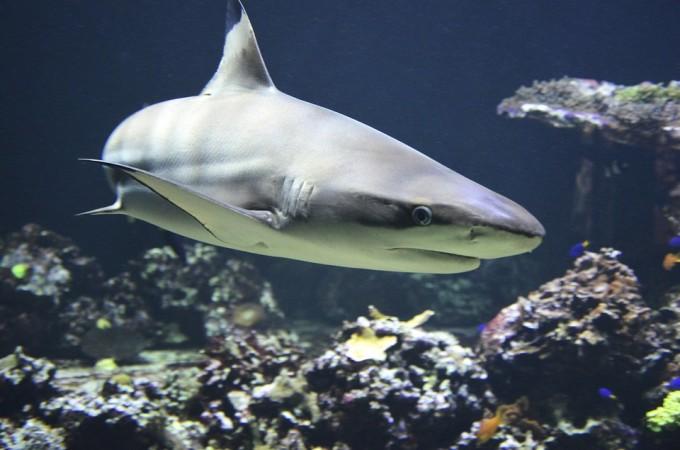
Scientists have discovered an entirely new shark species in the Atlantic Ocean and named it Atlantic sixgill shark (Hexanchus vitulus). Previously, it was thought that these sharks are counterparts of Indian and Pacific sixgill shark (Hexanchus nakamurai). However, a recent genetic testing helped scientists discover the stark differences between these two species.
The team of scientists, led by biological sciences professor Toby Daly-Engel from Florida Institute of Technology, says that the new species have unique saw-like lower teeth and six gill slits, whereas most sharks have only five.
Also, Atlantic sixgill shark only grows up to six feet in length, which is way smaller than their 15-foot or longer Indo-Pacific relatives.
Daly-Engel and other scientists from MarAlliance in Belize, Florida State University Coastal and Marine Laboratory in Teresa and the National Marine Fisheries Service, Southeast Fisheries Science Center in Panama City studied 1,310 base pairs of two mitochondrial genes and concluded there are several genetic differences between the two species.
"We showed that the sixgills in the Atlantic are actually very different from the ones in the Indian and Pacific Oceans on a molecular level, to the point where it is obvious that they're a different species even though they look very similar to the naked eye," said Daly-Engel in the study, which was published in the online edition of the journal Marine Biodiversity.
Though sixgill sharks are one of the oldest creatures on Earth, scientists were not sure about their characteristics till now because they live very deep in the ocean, making them extremely difficult to study.
Daly-Engel also said that after being identified as different species, Atlantic sixgill sharks will now have a better chance at long-term survival. "Because we now know there are two unique species, we have a sense of the overall variation in populations of sixgills. We understand that if we overfish one of them, they will not replenish from elsewhere in the world," she said, as reported.
According to International Union for Conservation of Nature (IUCN), sharks in the genus Hexanchus face threats from the expansion of deepwater fisheries and sometimes end up in trawls of fishermen.
















